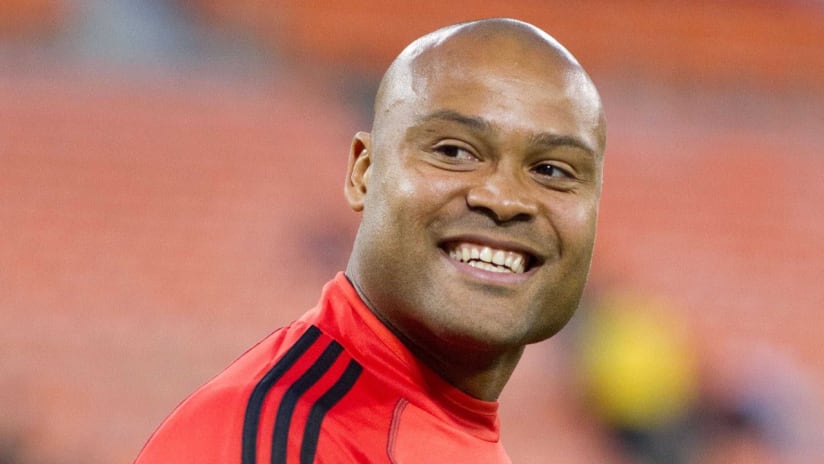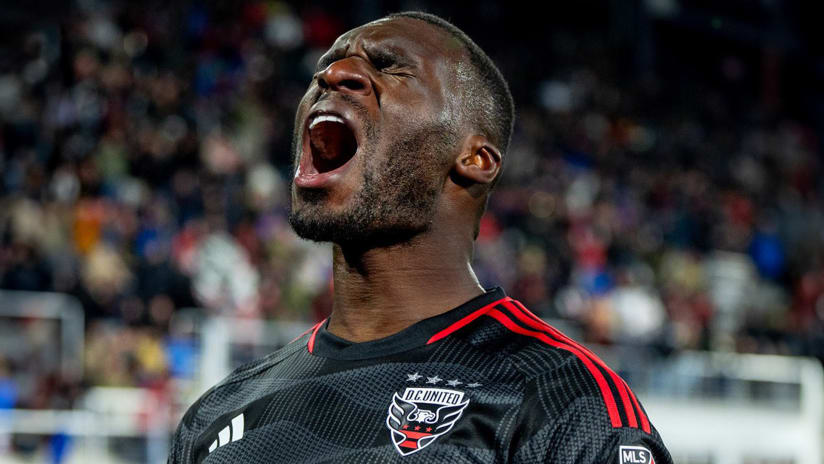Real Salt Lake fans will remember Robbie Russell as a dependable defender who converted the most important penalty kick in club history. D.C. United fans will recall him as a dependable presence who helped the club climb back to respectability.
In the big picture, those may only have been precursors to the truly important phase of his professional career as an Emergency Room physician.
Russell is in first year as an ER resident in the University of Virginia medical system after graduating from medical school at George Washington University last year. That is likely to put him near the front lines of the medical response to the coronavirus pandemic in the weeks and months ahead, which has brought normal life to a halt across the world.
"It’s definitely going to be a part of our experience, in terms of our first year as physicians," Russell said during an interview with Extratime on Monday. "We will be the physician generation that kind of experienced [COVID-19] and that sort of thing. And it kind of effects our training where everyone is adjusting. It’s a process of adjustment. It helps coming from my background as an athlete, you’re used to kind of adjusting. You don’t know what any day is going to bring, and it helps kind of having those strengths and having those resources in your back pocket because it keeps you on your toes."
Russell is based in Charlottesville, Virginia, separated by a 2-hour drive to the Northeast from his wife and children in Northern Virginia. While Central Virginia is not one of the most active hotspots of the disease so far, Russell has still avoided making a trip to see his family for the last month-and-a-half. Although these are trying times, he believes mitigating risk now will prove well worth it in the relatively near future.
"The biggest thing that I’ve done is just trying to take it one day at a time," Russell said. "You show up and you do what you’re supposed to do that day, and then if it changes, you adjust, and then if it continues to go on, you do your best to kind of roll with it.
"It doesn’t always feel great. I miss my kids, I miss my wife. But I would always hate to kind of put them at risk. ... In the end I’m thinking this is going to be a blip. Six months or a year from now, we’re just being like, 'listen, we got through this.' But I wouldn’t want to like, have it where something I did kind of made it a much bigger thing for us."
Russell played collegiate soccer at Duke and then despite being drafted by the LA Galaxy, tested his wares in Scandinavian football instead. He returned to the States in 2008 to play for RSL and fellow Duke alum Jason Kreis, and converted the deciding penalty kick in RSL's unlikely 2009 MLS Cup triumph over the same Galaxy.,
Inevitably, the Extratime gang had to ask, which situation has more pressure: Taking a championship-deciding penalty, or working in an ER? Russell chuckled.
"I’m going to say doing what I do now," Russell said. "But that was a good day, too."
After four years at Salt Lake, Russell moved on to D.C. and helped Ben Olsen record his first playoff appearance as a head coach in 2012, though Russell's playing momentum was interrupted by a foot injury in July. He retired less than a year later at age 33 and immediately entered medical school.
Russell isn't the only MLS alum currently practicing ER medicine. Former New England Revolution defender Marshall Leonard recently completed his ER residency at Stony Brook University and is now an attending ER physician.
Despite Russell's first-hand medical experience, he emphasized that a lot of his thoughts and feelings during this unusual time are no different from anyone else's.
"Personally, there are a lot of unknowns," Russell said. "You don’t know what it’s going to look like in a month, what it’s going to look like in two months, what it’s going to look like in three months, how long is this going to last? Everyone is kind of dealing with that. Everyone is struggling with that. And for me personally, just because I’m in healthcare doesn’t mean I necessarily have a crystal ball of being able to predict things. You just kind of rely on the information that you have."














